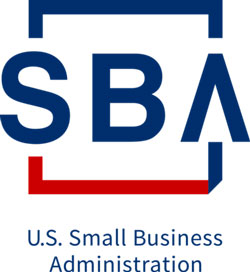Funding Your Law Firm With Credit Cards – What You Need to Know
The Pros and Cons of Using Credit Cards to Start Your Law Firm
Starting a law firm is no small feat. With the costs associated with starting a business, finding the capital to fund your dream can be difficult. Credit cards offer entrepreneurs an accessible way to finance their business ventures, but they come with their own set of risks and rewards. In this article, we’ll explore the pros and cons of using credit cards to start your law firm and provide you with some alternatives to using credit cards to start your law firm so you can make an informed decision about how to succeed in your practice.
Introduction to Starting a Law Firm and the Cost Associated With It
Ultimately, starting a business is an important financial decision, and the choice to use credit cards to help fund your law firm should not be taken lightly. It is important to weigh the risks and rewards associated with using credit cards and make a decision that will benefit you and your business in the long run. With careful financial planning and a budgeting strategy, starting your law firm with credit cards may be an option worth considering. Ultimately, it is important to assess your own financial situation and make the decision that is best for you.
Starting a law firm is an ambitious goal that requires careful financial planning. The costs associated with starting a business can be daunting, especially when starting such a specialized and expensive venture as a law firm.
When thinking about starting up a new business venture, many entrepreneurs turn to credit cards. They tend to be easy to get compared to traditional loans or business lines of credit.
Credit Cards have a lot of flexibility – they are not secured by collateral, and you can generally use them on any type of business expense.
They offer a potentially accessible way to finance your law firm with relatively low effort, but there are pros and cons to using credit cards for starting your law firm.
Explaining credit cards as an accessible way to finance businesses
Credit cards are a convenient way for entrepreneurs to finance their business ventures. With a relatively low effort to obtain, and very little initial cost, you may be able to access a line of credit that is sufficient to cover the startup costs associated with starting your law firm.
Credit cards offer flexibility in terms of how and when you pay off your balance. You can choose to pay off your balance in full each month or over a period of time, depending on what works best for you. Credit cards also offer the convenience of being able to make purchases online or in person with one card, allowing you to manage all of your law firm expenses from one account.
Despite the pros that come with using credit cards to finance your business, there are risks and expenses associated with starting a law firm using credit cards. Before making any decisions, it is important to understand both the advantages and disadvantages of starting a law firm on credit cards – and some of the other potential options available to you like legal funding, settlement funding, law firm lines of credit, lawyer loans, and other types of funding options offered by third party legal funding companies (like Balanced Bridge Funding).
Pros of starting a law firm with credit cards
There are several advantages to starting your law firm with credit cards. As mentioned above, starting a business on credit cards is relatively easy and offers flexibility in terms of repayment plans. In addition, the convenience of having all your expenses in one account makes it easier to track spending and budget for future expenses.

Another benefit of starting a law firm on credit cards is the potential for rewards and cash back. Many credit card providers offer reward points that can be used toward travel, merchandise, or cash back, so starting your business on this route can give you access to these perks as well.
The truth is, many entrepreneurs are using credit cards to finance their operations, pay bills, and sometimes to make payroll (not ideal). And first and foremost, a law firm is a business.
According to the 2019 Intuit survey, “60% of entrepreneurs use business credit cards for their businesses”
Cons of starting a law firm with credit cards (high-interest rates, lack of protection, etc.)
While starting your law firm with credit cards has its benefits, there are some drawbacks to consider as well. The most important one is the potential for debt. If you are not careful with your spending and fail to make payments on time, starting a business on credit cards can cause you to rack up debt in a hurry.
This can become a real problem because credit cards charge high interest rates. The average interest rate for business credit cards is above 20%. If you cannot pay off the balance in full each month, you can find yourself in a situation where even if you are paying much more than your minimum payments each month, you can still be accruing hundreds of dollars per month in interest charges, making it hard to get your principal balance paid down.
And if you are only making your minimum credit card payments, it can take years (or decades) to pay off your balance. According to the Consumer Federation of America, it would take more than 10 years to pay off an average credit card with minimum payments if you owe just $5000 in principal.
So if you are going to use credit cards to finance your business, you need to pay attention to your balance and keep it low – and if it does start to creep up, you should start paying it down aggressively rather than making only your minimum monthly payments, which might not be easy when you aren’t making a lot of money yet off of your new law firm.
Credit Card Reward Points Don’t Always Work
Finally, starting a business on credit cards can negatively affect your credit score if not managed carefully because of the potential for high balances, increasing debt, and/or utilizing more than 30% of available credit. A high balance and increased debt can result in a lower credit utilization ratio, which is one of the factors used to calculate a credit score. Additionally, using more than 30% of available credit will also impact your score.
Source: https://www.huffpost.com/entry/how-starting-a-business_b_5311902
Credit card debt is often seen as a bad or “questionable debt” when it comes to businesses. Generally speaking, credit card debt is seen as high risk because interest rates tend to be very high and when used for business, the stakes are even higher. Businesses can quickly find themselves in a precarious financial situation if they are not careful about how much they use and how quickly they pay off their credit cards. However, there may be certain situations where taking on credit card debt makes sense for a business – especially if it is done in the context of an overall strategy that includes other financing methods.
There is also the risk of identity theft and fraud when using credit cards, so it is important to keep track of your account activity and only use trusted sources for online purchases. Identity theft and fraud are serious issues when it comes to using credit cards for business purposes. To minimize the risk of identity theft and fraud, businesses should take the following steps:
- Ensure the safety of their customer’s personal information by only using secure payment methods that protect their data.
- Monitor transactions regularly to detect any fraudulent activity in a timely manner.
- Implement strong security protocols that include two-factor authentication whenever possible.
- Regularly update software, and use firewalls and other technologies to keep up with emerging cybersecurity threats.
Strategies for starting a law firm with credit cards (setting limits, budgeting effectively, etc.)
When it comes to starting a law firm with credit cards, there are certain strategies that can help to make the process easier and reduce the risk. These strategies include:
- Setting limits – This means setting an upper limit on how much credit card debt you are willing to take on and making sure you always stay within those limits.
- Budgeting effectively – Creating a budget that takes into account your current financial situation as well as expected future expenses will help you better manage your credit card debt.
- Paying off balances in full – If possible, make sure to pay off your balance in full each month so as not to accumulate interest payments.
- Utilizing automatic payments – Setting up automatic payments will help ensure that monthly payments are made on time and reduce the risk of bad credit due to missed or late payments.
Which Business Credit Cards Might Be Good for a Startup Law Firm?
Many companies are currently offering excellent rewards programs for business credit cards. Some of the best ones include:
- Chase – Offers several cash back rewards options and a wide range of benefits for business owners.
- American Express – Provides generous cash back rewards with its various business cards, in addition to exclusive perks such as access to airport lounges and free auto rental insurance. Plus, their rewards credit card is outstanding. Many businesses pay all of their expense on their American Express Rewards card just to build up points for travel. Their booking engine operates exactly like the Expedia.com website – except you don’t have to pay to travel (except with points)
- Citi – Gives customers a range of reward points and automatic bonuses when they use their business card.
- Bank of America – Offers flexible reward points, no annual fees, and other incentives.
Which Business Credit Cards Are Easiest to Get as a New Law Firm
Capital One Spark Cash for Business – This card offers easy approval and features a generous cash back rewards program. This has been the first business credit card for a lot of small businesses. It is easy to apply for, and so far at least (as of 2023), they approve a lot of their applications.

Bank of America Business Advantage Cash Rewards Mastercard – This card is a great option for businesses that want to earn cash back with no annual fee and an introductory APR offer.
Wells Fargo Business Secured Credit Card – This card requires a security deposit but provides access to features such as purchase protection, extended warranties, and travel benefits.
Here are some tips to help you stay out of financial trouble while using credit cards:
- Pay your balance in full each month. This will help you avoid interest charges and can help you manage your credit utilization ratio.
- Track your spending and make sure it falls within your budget.
- Avoid unnecessary purchases and consider using cash or other payment options for items that are outside of your budget.
- Monitor due dates for payments and set up reminders if needed to ensure that all payments are made on time. Late payments can negatively impact your credit score.
- Try to pay more than the minimum amount due each month. Doing so will reduce your overall balance and save you money on interest payments.
- Compare different credit cards to find one with a lower interest rate or a better rewards program.
- Contact your credit card issuer if you’re having difficulty making payments in order to discuss potential solutions.
- Transfer Balances to Credit Cards with lower monthly interest rates to help get your principal balance paid down as quickly as you can.
Alternatives Financing Options for Starting a Law Firm
SBA Loans for Start Up Law Firms
If you asked around on LinkedIn or another social media platform about the best financing options for starting up a small business, someone will probably suggest approaching the SBA for a loan.

The Small Business Administration (SBA) is an independent agency of the U.S. federal government that helps provide financial assistance, resources, and support to small businesses. Their mission is to aid, counsel, assist, and protect the interests of small business concerns and ensure that these entrepreneurs have access to capital and a fair chance at success.
The SBA helps small businesses by providing access to capital, counseling services, and various forms of assistance.
They help entrepreneurs get startup funding through loans made by commercial lenders with a government guarantee, as well as provide grants and access to venture capital funds. The SBA also offers advice on a variety of topics such as business management and operations, legal advice, taxes and accounting, human resources, marketing strategies, procurement procedures, and more.
So you should definitely get acquainted with your local SBA office because they provide a lot of resources for startup businesses.
However, it is also important to know that the SBA is not generally considered an “easy” source of financing by anyone who has ever used them to secure financing. That doesn’t mean that you shouldn’t try. SBA loans are often low-interest with favorable terms, making them a great source of capital if you can get them.
But you should expect a lengthy and detailed process to secure a loan from the SBA. We say this, just so you are prepared for the process, which most people will tell you they find daunting.
When considering SBA loans for start-up law firms, there are a few important things to keep in mind.
- It is typically considered difficult for start-up firms to qualify for an SBA loan, due to the loan requirements and lengthy application process.
- Generally, eligibility for an SBA loan requires good credit scores and collateral.
- If a firm does qualify for an SBA loan, the firm will likely need to provide extra paperwork such as business plans, tax returns, financial documents, and more.
- While the process can be difficult, it can also be beneficial if a firm is able to secure an SBA loan as they often come with lower interest rates than other forms of financing.

Contact the SBA
To Learn more about the SBA, you should visit their website: https://www.sba.gov
To find an SBA office in your area, you should visit the SBA website here: https://www.sba.gov/about-sba/sba-locations/sba-district-offices
Summary
Starting a law firm with credit cards is an accessible way to finance your business venture. It is important to weigh the pros and cons of starting your law firm with credit cards so that you can make an informed decision about which avenue to choose. By understanding both sides of the coin, you can be sure that you make a decision best for you and your law firm.
If you decide to use credit cards to finance your law firm or to start up your law firm, it is important to pay down your balance each month to make more than your minimum monthly payment, otherwise, it can take over a decade to pay off your balance, which hurts your credit, and prevents you from using your credit cards to finance your operations going forward.
If you are going to use credit cards, it is important to explore all your options as far as companies go. Cards companies offer different interest rates, rewarded points programs, travel, and cash back options. Some credit cards charge annual fees and others do not. Some card companies specialize in transferring balances and offer interest free options for up to twenty months which can help you pay down accrued balances more quickly. So make sure you check around to get the best deal you can and keep checking around. You aren’t married to anyone credit card, and often the longer you have credit card accounts, the better interest rates you can get.
Savvy lawyers should also learn about other methods of third-party financing like Legal Funding solutions offered by Balanced Bridge Funding. Legal funding companies understand how lawyers are paid and often can provide you with the much-needed capital you require to keep going and keep growing.
Consider Using Legal Funding Options to Help Start Your Law Firm
What Types of Legal Funding Does Balanced Bridge Funding Offer?
First, let’s begin with the type of funding we DO NOT offer, which is pre-settlement funding. We do not offer pre-settlement funding for plaintiffs, nor do we offer pre-settlement funding for attorneys. This is not our specialty, but there are many options out there for pre-settlement funding for both plaintiffs and plaintiff attorneys.
Some of Our Legal Funding Options Include:
- Post Settlement Funding for Attorneys
- Post Settlement Funding for Plaintiffs
- Attorney Line of Credit (conditions apply)
- Voucher Funding (conditions apply)
- Loans for Attorneys
Attorney Line of Credit Through Balanced Bridge Funding

A law firm line of credit is specifically designed to help contingency fee attorneys who may not have much physical collateral, but who have spectacular case inventories with high potential gains.
Bank lines are extremely difficult to qualify for unless you have adequate physical collateral and a high credit score. Furthermore, even if you do qualify, you are unlikely to receive the amount of capital you require.
Unlike banks, we believe that your case inventory is not only your most valuable asset, but also a great source of collateral. In fact, we look almost exclusively at your case inventory when determining your line of credit, not your personal assets. That also means that your credit score has limited impact as to whether or not you will be approved for a credit line.
Learn More About an Attorney Line of Credit.
Attorney Voucher Funding Through Balanced Bridge
Private practice attorneys appointed or contracted to represent indigent clients can face payment delays of their fee because the government entity is a slow payer. Unlike public defenders who are government employees and guaranteed a salary, private attorneys are essentially contractors and can face the same issues of payment that affect the general government contracting community.

Since the recession of 2008, governments at all levels faced hardship that required them to cut budgets and reorganize priorities. While the economy has improved since then, factors like the changes in the global economy and the cost of entitlement programs will continue to affect the budgets of local, state, and federal government. That in turn influences programs like compensating private practice attorneys in a timely manner.
Balanced Bridge Funding offers financing on local, state, and federal government vouchers to private practice attorneys nationwide whose payments have been, are currently, or will be delayed.
Learn More about Voucher Funding.
About Balanced Bridge Funding
Balanced Bridge Funding offers legal funding solutions for plaintiffs, plaintiff attorneys, attorneys, and law firms. To talk to one of our legal funding specialists about getting help managing your law firm cash flow, please call (267) 457-4540 or email: info@balancedbridge.com.
Or to apply online, simply CLICK HERE and fill out our quick form application.







